Maluca – “NYC Baby”
Scott Thorough – “Magnassanti” (bc)
Caine Casket – “New Lyfe” (mp3)
I revived an old music blog at the end of 2021?
Maybe it’s been a foolish endeavor, and maybe I’m the only one who misses the blog ol’ days, but I’ve been giving it a shot. I’ve been working on restoring some of the old content, though much of it was lost. I’ve slowly been rebuilding the old remix sunday archives, and even posting the occasional new edition. And I’ve been writing again.
You can find all the label’s releases here, on bandcamp, or most anywhere you listen to music these days. I’ve still got copies of some of the old vinyl releases, and I recently released the first in a set of charitable cassette compilations to raise awareness about the continued [mis]use of broken windows policing methods.
Plus, I put together a playlists section with a handful of spotify lists that hopefully start to capture a [slightly] updated version of the moods we used to peddle. Give those a listen and a ❤ if you would be so kind. If you want to get in touch, just give me a holler.
– Haldan/Boody
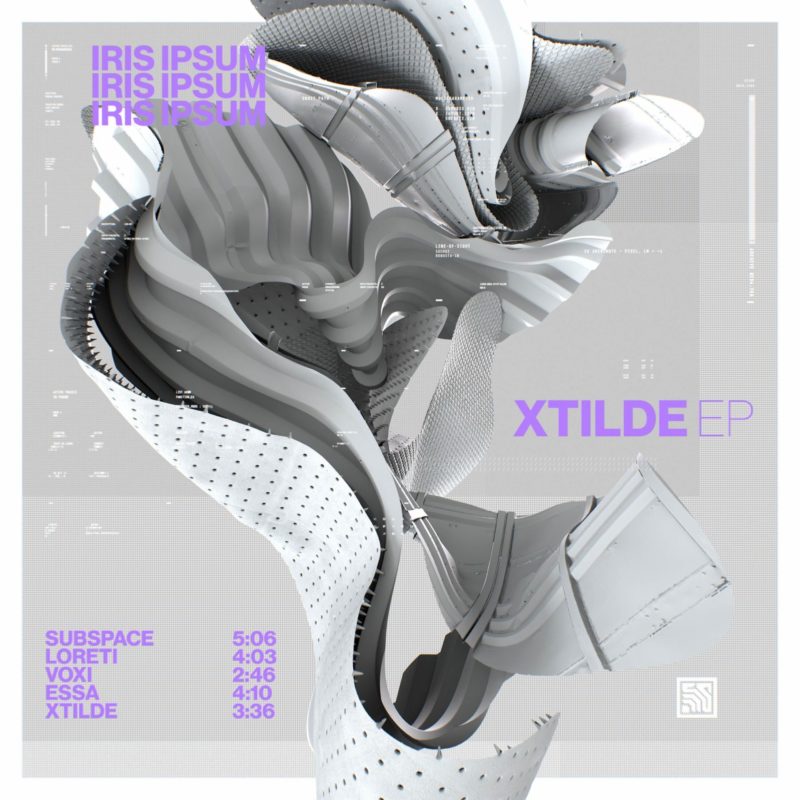
Lush glitch and bass from Los Angeles producer Iris Ipsum, real name Sol Rosenthal. This is meticulously produced and sharp stuff, but with enough round-around-the-edges to keep it pleasant enough for a sunny day. Properly LA forward-thinking electronic music. If you’re intrigued by the production techniques on this, I also suggest you check out Rosenthal’s gumroad, which has a slew of really exciting M4L patches available for free (or whatever you wish to donate). “Subspace” is out now on bandcamp as part of the Xtilde EP; it’s also available for streaming wherever.
Iris Ipsum – “Subspace” (sc)
![]()
Another artist from LA, next up is a punchy cut from Lake Hills that sits somewhere between electro and US breaks. Plenty of waggle to this one, shimmery overtones, and a nice murky vocal undertone. All that works for me. When I heard this at first, I could sense Lake Hills was probably fond of Elektron gear; I then stumbled across this fun live in-studio session he did with edIT a few months ago, which confirmed that suspicion. Hard not to love those Swedish rytm boxes. This is out now for streaming anywhere and everywhere.
Lake Hills – “Picking Flowers” (sc)
![]()
Finally, a shift back to my side of the country with some sweet vocal electronica from Indian-born and New York-based producer and vocalist, tanvi everywhere. Inspired by a long-distance relationship, this mines the infinite well that is longing and dull heartache. No shade, it’s always effective subject matter because we’ve all pined for someone, whether separated geographically or otherwise. This is out now for streaming all over. No bandcamp, I’m afraid, but thankfully tanvi and her label have been kind enough to let me share the mp3 with you below.
tanvi everywhere – “Need You Now” (mp3)
Tul Waitoonkiat – “Nueng Kamtham” (Black Merlin Traverse Dub Mix) (bc)
404 Shadow – “Turn the Page” (sc)
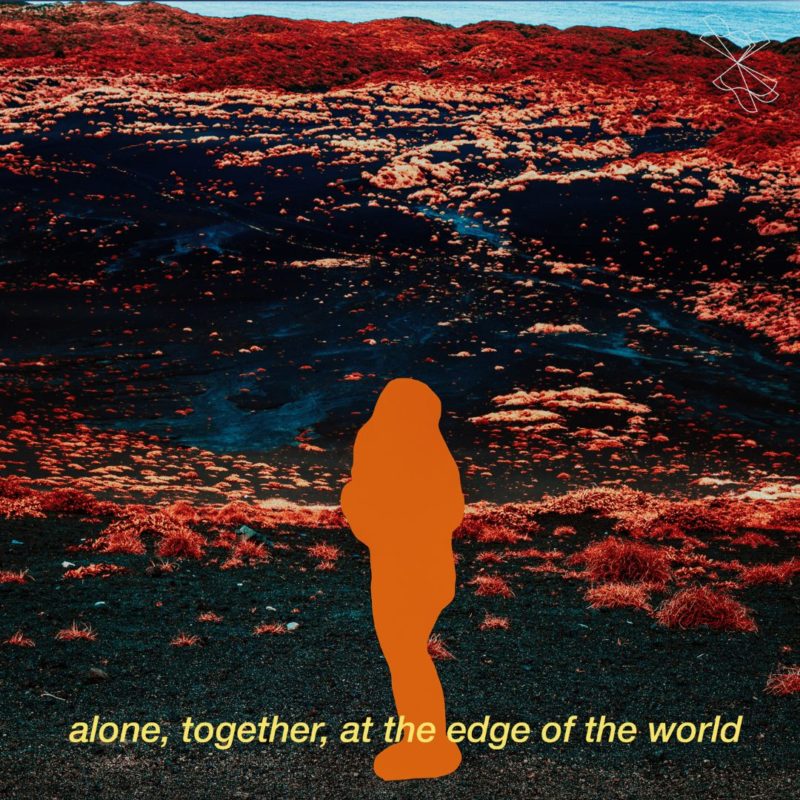
Another soaring beauty from Sound of Fractures, aka Jamie Reddington, who I’ve covered a number of times here. Reddington’s music is much like what he reflects on socials: open, sincere, and willing to embrace the flush of emotions that comes from being a father. This is the next to final single from his interactive Scenes project, for which the final single is currently accepting submissions. Head over here to participate.
Sound of Fractures – “Meant To Be” (sc)
![]()
Next up is an touching slice of leftfield/glitch hop from Australian BKLV. Lovely sludgy stuff here, with moments of pure melancholia. Fitting, as the song was written in memory of the artist’s cat and studio buddy (listen for the audible purring). I recently spent a huge part of my savings to rescue my cat from near-certain death, so I can definitely empathize with how important and deserving of honor our feline friends are. This is out now for streaming, but you can also grab it as a free download below, thanks to the artist’s generosity.
BKLV – “Boundless” (mp3)
![]()
Last but not least is this excellent bit of club fusion from St. Louis’s Umami (aka Pajmon Porshahidy). At the encouragement of Palms Out stalwart, Bianca Oblivion, Umami merged elements reflective of their Persian heritage with breakbeat, bass, and jersey club. Straightforward and effective dancefloor material here, I expect this would hit perfectly for the right audience. This is out now for streaming, but Porshahidy has also kindly provided the mp3 for all the DJs out there eager to test this out for themselves.
Umami – “Djadou” (mp3)
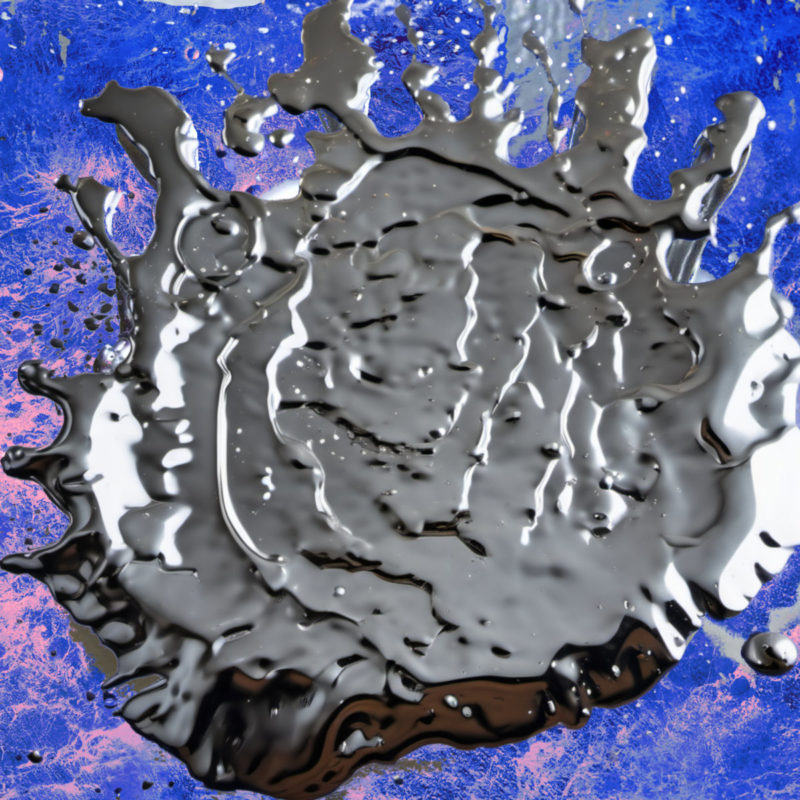
There’s a common perception of modular synthesis (especially Eurorack) as only suitable for either (a) long-form generative ambient music, or (b) noodley glitch and noise. Another common opinion of modular—or at least of the musicians who invest in it—is that it’s primarily an exercise in vanity, or just a pure expression of gear acquisition syndrome. I’ve had these doubts about my own forays into modular, especially when I’ve considered how much strain it can put on my pocketbook. There’s definitely some truth to all of these clichés; plenty of people with big Eurorack setups let them collect dust, or at least only use them to fiddle around, creating ephemeral soundscapes with little utility for music they actually release to the public (if they release any music at all). Nonetheless, these are not necessarily pointless pursuits—sound for sound’s sake is perfectly reasonable as a goal in and of itself; and I don’t even fault a pure collector. I’ve collected ephemera of various sorts my whole life, and I have found lots of satisfaction in doing so.
But none of this is the only way to use modular. The wonderful thing about it is that it can be whatever you make of it. Its power is in its flexibility. Music For Modular is the latest album by London artist Lazy H, and is a brilliant example of modular’s versatility. While there’s plenty of exciting synthesis and sound design at work on this record, it’s also a demonstration of how a modular setup can integrate comfortably into a classic band format, playing a role alongside live drums, bass, and keys. Most importantly, Music For Modular is distinctly musical. It has its atmospheric moments (opener and closer “Start from an Arp” and “Allen” fit this bill), but it’s far more an exploration of the danceable and melodious sides of jazz and funk (lead single “Body Thaw” and “Quicksilver” as the best examples). My pick from the record is “Tadasana Pose,” which oscillates between viscous, syrupy glitch hop and total serenity—with stretches that seem to even approximate prayer music.
None of these genre-descriptors are particularly useful here, though, and may end up reductive. What’s evident throughout the album is that this is music that emerged from spontaneity. It’s not the robotic navel-gazing of a lone synthesist. Instead, it’s the product of improvisations that have let the synths act as warm and expressive instruments with as much personality and elasticity as any physical instrument. This may be music for modular, but it’s music by humans.
Music For Modular is out now on bandcamp or for streaming.
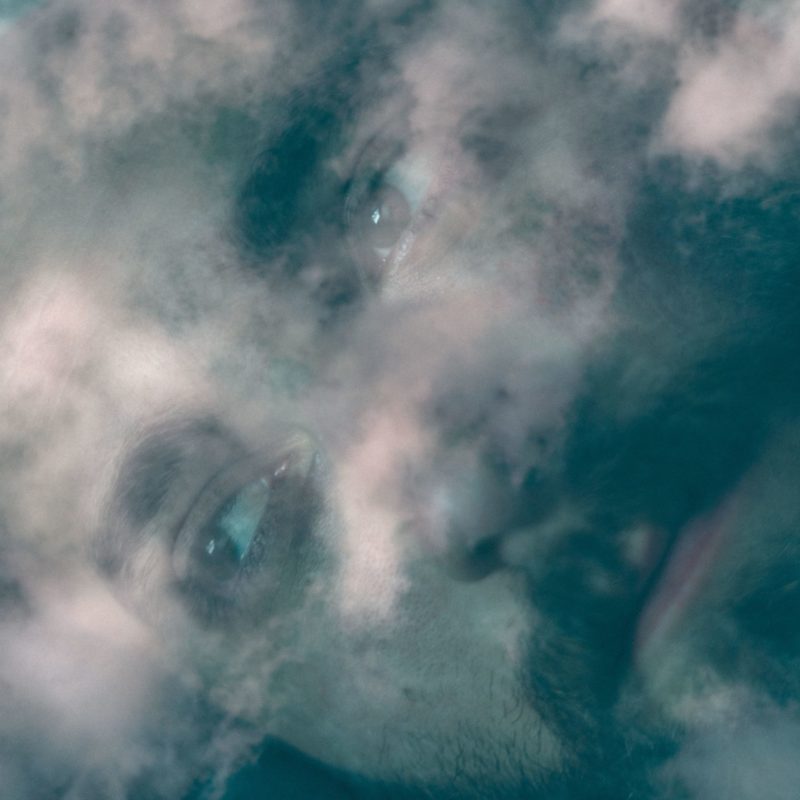
Like so many others, in the few years preceding the pandemic, I sheepishly fell for the lofi girl. It was truly easy listening for millennials (and zoomers). At the time, I was overwhelmed with studying for the bar, so when I wasn’t actively writing music myself as an outlet for the stress, I simply could only handle background music. I was exactly the demographic the chilled cow was targeting, someone who only needed music to study to. But despite generally not paying close attention, I would occasionally notice a song here or there that would stand out from the rest, and make note of the artist. It often struck me how many of them seemed to be producing these lofi beats in parallel to other styles, sometimes many other styles. It was as if, for many of these artists, the production of the study beats served a similar purpose as did the listening: reducing stress by embracing the loopy calm. Often a quick dig into these artists’ catalog would reveal they primarily produced brostep or house or metal, or all of the above, or just whatever. There was seemingly no unifying route to the study beats, just a collective individual embrace of the microgenre youtube birthed.
I was recently sent this lovely record by Scranton, PA-based producer, Broey. His latest record is Fragments, a nice and sweet 24-minute journey through an array of midtempo house subgenres. As it turns out, Broey. is exactly one of these types—a guy who’s been making music for years, and who’s explored a range of genres, but who’s seen the most substantial reaction to his contributions to the world of study beats. He himself describes those contributions primarily as community efforts—lots of collaborations, and a way to connect with like-minded producers across the globe. This in contrast to Fragments, which he describes as a passion project.
Fragments shines in the moments when it focuses more on the fundamentals. The stand-out is without doubt the opener, “Like That,” an effective and pleasingly modern take on Chicago house, even flirting with elements of juke. Similarly, “Run For Cover” is my second pick because it doesn’t try too hard to get fancy. It’s bread and butter modern house music primarily suited for a dancefloor, but with enough hookiness and personality to stick in your ears after the fact. You can tell Broey. is a producer who can shape-shift, and that’s enviable, but it also seems like with this project he’s intent on drilling down closer into the music he actually loves. Study beats are a means for many to maintain equilibrium and even make friends, but underlying all those waves and waves of constant chill, we all need some substance.
No bandcamp for this, unfortunately, but you can find Fragments for streaming all over.
Broey. – “Like That” (sc)
Broey. – “Run for Cover” (sc)
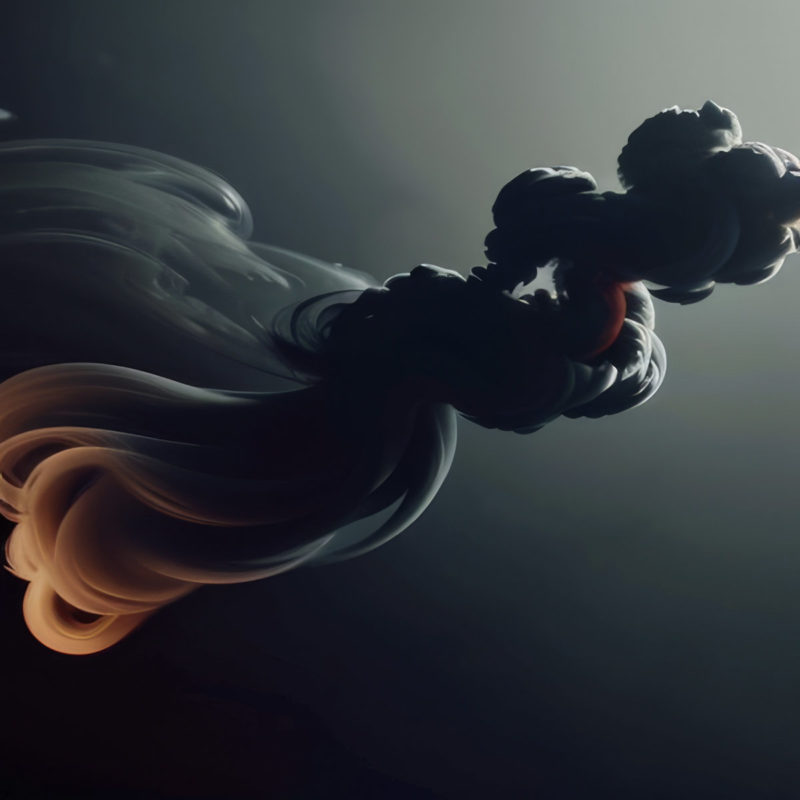
I’ve posted about Mattr (aka Matthew Clugston) a few times, and I like each track he puts out more than the last. This is one is no different. Intricate and elegant electronica; all whispers, gauze, and pearls. This is from his forthcoming album, due out May 31st. It’s out now on bandcamp and for streaming, but Clugston has kindly offered it for free download below.
Mattr – “Cholia” (mp3)
![]()
More exquisitely delicate electronica, this time from San Diego-based Blaine Counter, aka Graffick. I’ve previously posted a couple of his other singles, which were both propulsive and drummy affairs. He’s back now with something more contemplative, a lush nighttime hike up Cuyamaca Peak. Heavenly stuff. From his upcoming LP, Spectra, out later this year. No bandcamp for this, but you can find it streaming, and Counter has generously allowed me to share the mp3 with you below.
Graffick – “Messages / In the Wake” (mp3)
![]()
In a nod to their heritage, Hanover-based duo pølaroit recorded a massive organ in a local church, holding chords and simultaneously pulling the organ stops, gradually filling its pipes with air until the organ’s sound had swelled immense. These recordings were incorporated into this nice bit of warm and gentle piano-driven house. No bandcamp for this unfortunately, but you can catch it on any of the streamers.
pølaroit – “The Organ, Pt. 1” (sc)
Ivohé – “yemmal2am” (mp3)
ALIAS – “COCKTAILS AND DREAMS” (sc)
Kamasi Washington – “Dream State” (ft. André 3000) (bc)

كيف يمكن ألا يستطيع الإنسان أن يسير إلى ملكه الخاص؟ أن يزور قبر زوجته؟ أن يأكل ثمار أربعين جيلاً من كدح أسلافه من دون أن يعاقب بالموت رمياً بالرصاص؟ على نحو ما، لم يكن هذا السؤال الفجّ القاسي قد نفذ سابقاً إلي وعي اللاجئين الذين شوشتهم أبدية الانتظار، معلقين آمالهم على قرارات دولية نظرية
How can a man not walk to his own property? To visit his wife’s grave? To eat the fruits of forty generations of the toil of his ancestors without being punished by death by firing squad? Somehow, this harsh, harsh question had not previously penetrated the consciousness of the refugees who were confused by an eternity of waiting, pinning their hopes on theoretical international resolutions.
– Susan Abulhawa, Mornings in Jenin
Remix Sunday 168 Zipped Up. (99mb zip)
Omar Souleyman – “Nahy” (مُخْتار moktar edit)
Sango – “Me dê Amor” (Ballads Edit)
Aysha – “Baddie” (Crosstalk Remix)
Charli XCX – “Hot In It” (QRTR ‘Madame’ Flip)
Men I Trust – “Sugar” (Tom VR Edit)
Alex Iso – “Fifth Kiss” (Alpha Delta Remix)
An Avrin – “Snake” (BABii dub)
Frank Ocean – “Chanel” (camoufly Remix)
Cherrelle – “Saturday Love” (Wilhelmina Bootleg)
Jill Scott – “He Loves Me (Lyzel in E Flat)” (CalvoMusic Edit)
image/ Massimo Vitali
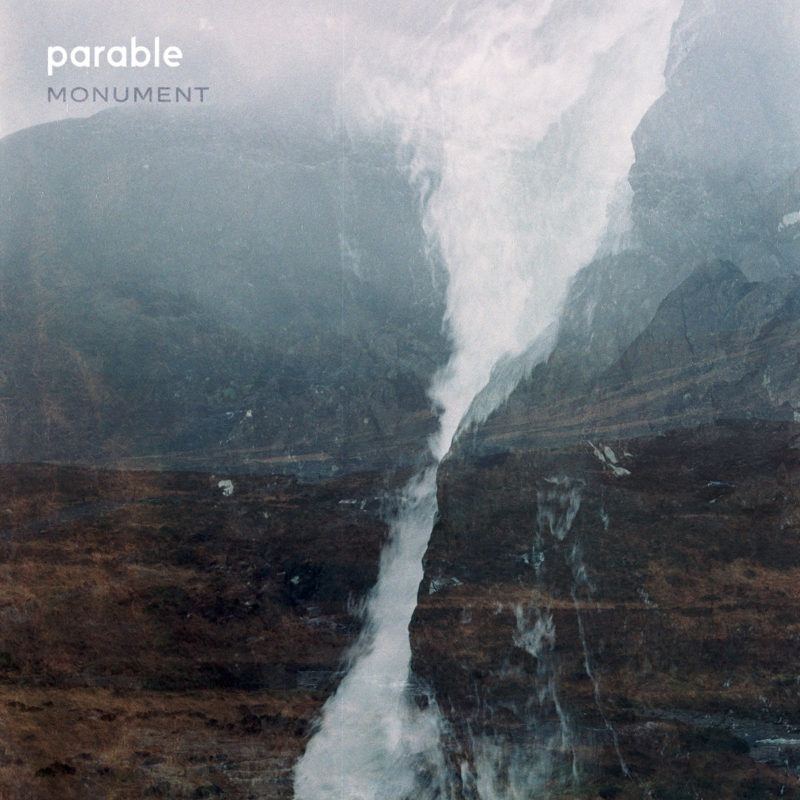
It’s a touch comical how much I’ve written about Boards of Canada on this blog over the years. In 2021, I wrote a piece about the Kahvi Collective’s Tangents compilation, which was an unrepentant Boards of Canada tribute album, made out of a longing and impatience for more BoC material. On that record, we heard manifest the yearnings of fifteen artists expressing their devotion to the Scottish duo. At the time, I wrote about the compilation as if those songs were made specifically in tribute, almost as an invocation for the brothers Eoin/Sandison to return from their hibernation. While it may partly have been that, it may have been naive of me to think those artists weren’t already writing music like that out of pure inspiration, not just as an exercise in conjuration. BoC are not just missed, they’ve also legitimately birthed a subgenre.
It’s no longer enough to recognize that BoC’s music revolves around nostalgia; their music has become nostalgia. A generation of musicians like me have grown up with them, and now many of their qualities have been absorbed and become the sincere expressions of others. It’s almost unfair to call the resulting music derivative, or at least not in a critical sense. It’s like calling Raider Klan records derivative of Three Six Mafia; or modern electro released on the likes of Central Processing Unit derivative of Planet Rock, Kraftwerk, or Cybotron; or the sea of current ambient music derivative of Brian Eno. Sure, in all these examples, the current artists working in those subgenres do literally derive portions of their sounds from the work of those originators, but participating in a subgenre doesn’t make one’s music unoriginal, or for that matter any less enjoyable or emotionally important.
Parable (real name Julien Hauspie) is an artist from Kortrijk, Belgium. He belongs to this generation of consanguineous artists, linked by their mutual debt to Eoin and Sandison. His debut album is Monument, self-released earlier this year. While it certainly owes much of its sound to the oft-mentioned duo—particularly in its pace and liberal use of reel to reel tape warble—Monument is gorgeous in its own right. Perhaps more importantly, I walk away from it firmly facing forward, filled more with hope than a romantic aching for the past. There’s something matutinal about this record; it’s a sunrise record. It’s open-hearted and full of light and warmth. BoC records are of course some of the warmest electronic music ever produced, but they are often sunset records, characterized by a contemplative rear gaze, as opposed to an eagerness to tackle whatever today has in store.
Hauspie apparently wrote much of the record as an ode to the nature he experienced while backpacking across Europe, which may explain some of Monument‘s wide-eyed optimism. Even the record’s darker moments (e.g., “North Central”, “Undercurrent”) can’t quite contain the underlying flashes of light; the hope overpowers the melancholy. There are dozens of quietly joyous moments throughout the album, but Hauspie’s compositions shine brightest when he lets down the guardrails and embraces the ecstatic. The album’s opener, “Taking Control” brims electric; “Flashpoint” is like a modern day pagan devotional, rich with a sense of gratitude for the natural world; and pre-release single “Pin Drops” stirs in me the desire to run wide-armed through a wheat field. (By the way, I posted the lovely video for “Pin Drops” a few months ago, which is well worth checking out.)
Ultimately, Monument is a record beaming with love and sincerity. There’s enough of the past in it to make me smile about what I’ve already loved, but more so, it makes me want to bring new into the world.

Celestial dembow from 1tbsp (real name Maxwell Byrne aka Golden Vessel). This has that satisfying balance of serenity and energy that would make it great for rolling (or just dancing) on a beach as dusk sets in. This is from 1tbsp’s upcoming Megacity1000 album, and is available now on bandcamp and for streaming; but he’s also kindly allowed me share with you the mp3 below.
1tbsp – “Starchitect” (mp3)
![]()
Next up is this bouncy hi-NRG UKG number from Danish producer SAGE D. (apparently a new pseudonym, but not sure what the old one was). Love the distortion level on the percussion here—flirting with the edge of over-distortion can really add extra life to a song. No bandcamp here, but available for streaming. Grab the mp3 below (or head to soundcloud if you’d like the WAV). There are a bunch of other strong tracks there for free download.
SAGE D. – “THE WAY U FEEL” (mp3)
![]()
Last up, but definitely not least, is this sublime track from Aaron Horn, whose Crate Classics project I posted about a couple of weeks ago. From his upcoming album All the Love Within, this is somewhere between footwork and jungle, but in the gentlest of ways, all anchored by a Horn’s delicate vocal refrain. No bandcamp for this, but Horn generously provided the mp3 below, and you can also catch this for streaming.
Aaron Horn – “UPWRDS” (mp3)
MOY – “Frequency of Creation” (bc)
Tati au Miel – “My heart” ft. Cecilia (bc)
Erika de Casier – “Ex-Girlfriend” ft. Shygirl (bc)
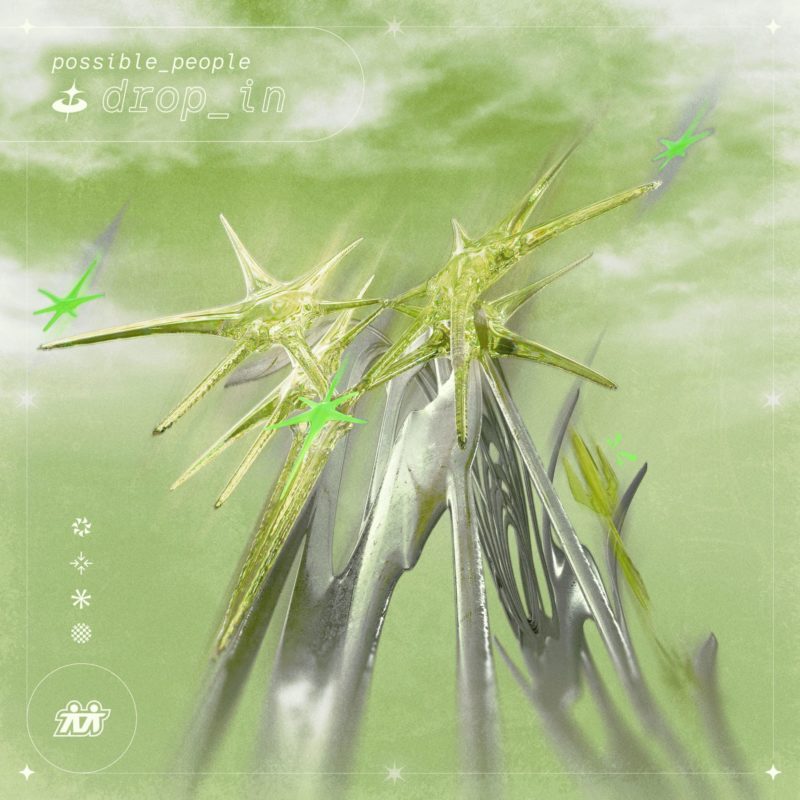
Sugary, airy jungle/liquid from Sydney duo Possible People (producers Pinz and Tulett). This is my kind of easy listening, I could listen to this sort of thing in the foreground or background all day long. This is part of Possible People’s upcoming sophomore release Drop In, out on April 26th on Sydney label Extra Spicy, but in the meantime the artist have given me permission to share the mp3 below. Preorder the record on bandcamp or find it for streaming once it’s out.
Possible People – “Fall in 2” (mp3)
![]()
Sharp left turn now to this gnarled, humid, sex anthem for club goblins, from LA’s Tony Pops. This is all sweat, sex, and leather. There’s even an interpolation of the “Thong Song” in there, which can almost never be a bad thing. No bandcamp for this, but Tony has been generous enough to let me share the mp3 below. You can also find it for streaming all over.
Tony Pops – “Playa” (mp3)
![]()
Last but not least is yet another top-notch track from Big Dope P, who rarely delivers anything I dislike. I’ve covered a couple of the other prerelease singles for his upcoming sophomore album Toto La Castagne, but this might be my favorite so far. Low-key by Doppie’s standards, and featuring vocals from Spanish artist BFlecha, it sounds like a mellow late-80s freestyle B-side for wooing the uptown girls. Few compliments could be greater coming from me. Preorder the album on bandcamp and get this and the other prerelease singles right away. The album’s out May 10th.
Big Dope P – “Event Horizon” ft. BFlecha (sc)
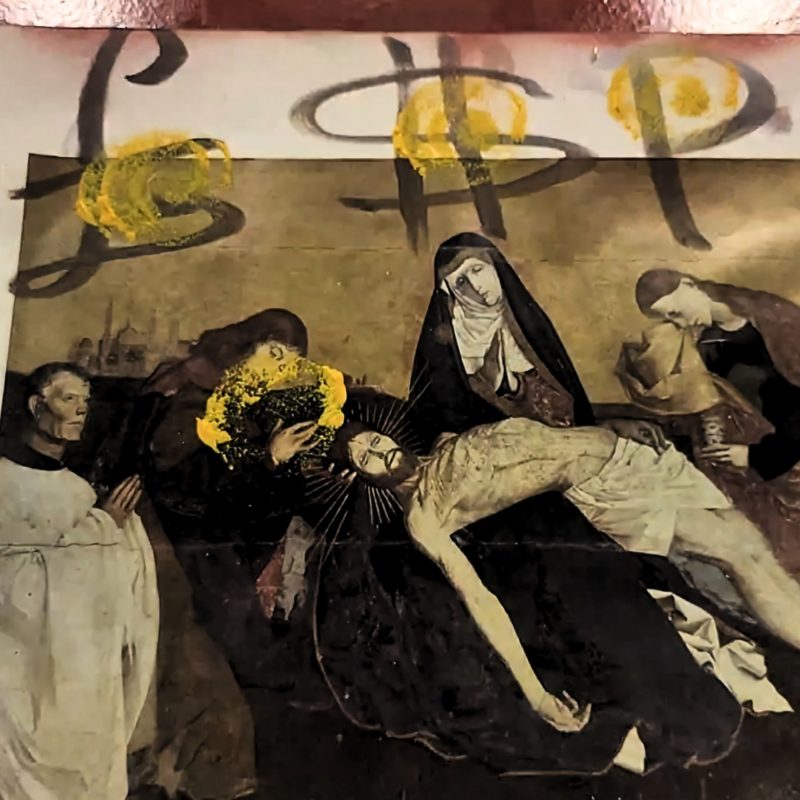
In 2015, I worked briefly as a project manager at a record label in Brooklyn that primarily released Jamaican dancehall and dancehall-adjacent music. As a result, it wasn’t uncommon to see deejays (in dancehall terms, that means a vocalist) come by the office to voice riddims the label was pushing, or otherwise make use of the label’s fancy studio. Toward the end of the summer that year, one of my bosses called me one morning and told me in a somewhat hushed tone that Lee Perry was going to come by to work on some music. The tone was called for. After all, the man was a living legend, having led the Upsetters, produced and released early Bob Marley and Max Romeo records, and collaborated with everyone from The Clash to Paul McCartney. For my own sake, I revered Perry mostly because of his role in pioneering dub music and its associated production techniques, in parallel with the likes of King Tubby and Scientist. I love old dub terribly, but I also credit those techniques as the seed for many of the subsequent genres that I hold dearest.
The label’s owner, who largely owed his career to the work of pioneers like Perry, was understandably deeply excited. He even had a set of action figures depicting Jamaican musical icons that decorated a shelf in the studio’s control room; a Lee Perry among them. The rest of us were a little tense too, not only because of Perry’s legendary status, but also because he had a reputation for being a madman. He had claimed to lead an alien race living on earth, and he was rumored to pour blood on his equipment and master tapes in order to preserve them. When he arrived, he was generally subdued but friendly enough. I didn’t get to sit in on much of the session, and had to run the office while my bosses got to go have fun, but from what I did observe, his imagination was as vivid as ever and his eyes wide.
As far as I know, nothing came of the recordings made that day, but after he left, his action figure was mysteriously gone too. (He eventually mailed it back from his home in the Swiss Alps.) Like those unused recordings, I’m sure there are literal hours of Perry’s music that remain unreleased. Though he died in 2021, music has continued to pour out, with dozens of posthumous releases already. This song is among the latest. I don’t know much about it or who’s behind it—it’s released on a label with very little digital footprint, MoSai Music. As far as I can tell, the label has only released music from one other artist, an album called Paris Mosel by Skinny Pablo, about whom I know nothing, but the album is dope. While it’s possible Perry produced this song himself, it’s unlikely, since most of his output in the past decade has been produced primarily by others, with him instead serving the role of deejay. Given the sound of this song versus that of the Skinny Pablo record, it stands to reason that Skinny Pablo may have had a hand in producing this, but maybe not—time might reveal the details. In any case, this is my kind of Perry record: hypnotic and dubby; an exaltation of, and incantation to, the aliens.
This isn’t on bandcamp, unfortunately, but it’s available for streaming, and thankfully the publishing company behind it has kindly granted me permission to post the mp3 here.
Lee “Scratch” Perry – “Real Love” (mp3)

Scandinavian/Baltic theme to today’s roundup post. First up is this piece from Helsinki-based Jonas Verwijnen from his debut EP1. The record is a personal one, and an attempt to navigate the complexities of human interaction as someone living with autism spectrum disorder. Really beautiful stuff. No bandcamp for this, but it’s available for streaming all over.
Jonas Verwijnen – “This Is Going Down The Wrong Path” (sc)
![]()
Next up is a striking cut of broken techno from Seal Pup, about whom I know next to nothing, except that they’re Latvian, based in Riga. This is from their debut EP First Swim, which is fittingly ocean themed, intended to illustrate the chaos and brutality of the open sea. Strong first showing here. Seal Pup has generously allowed me to share the mp3 of my pick from the record below, but grab the whole thing on bandcamp or stream it all over.
Seal Pup – “Tides” (mp3)
![]()
Finally, another monster of a track from Norway’s Dr. Sepi, who I’ve posted about a couple of times now. Its title and hook may be a vague shout-out to Daft Punk, but there’s nothing French Touch about this. The track is all claws out Scandinavian mongrel carioca on PCP. Out now on bandcamp and for streaming, but Dr. Sepi has kindly provided the mp3 below for dance floor annihilation.
Dr. Sepi – “Drop it, Force it, Kill it” (mp3)
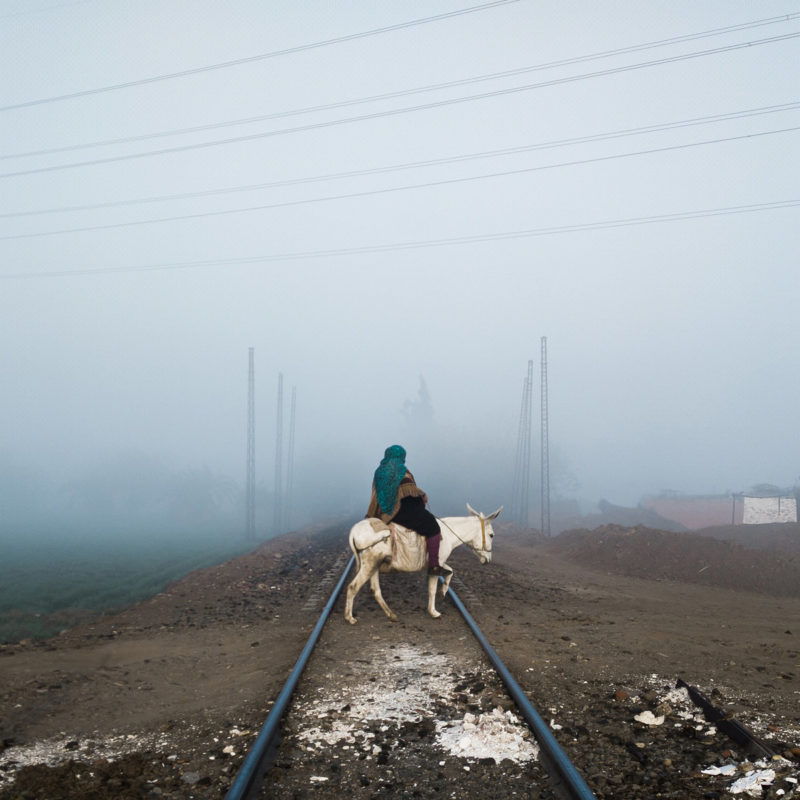
HVAD has long been among my favorite artists. Notice a Tiny Scratch for the Blue Behind is a collaboration between HVAD and Egyptian artist Abdullah Miniawy, released in 2022 on HVAD’s new label ULLLU (RIP Syg Nok).
The album is a theatrical exploration of spirituality, the failures of polytheism, and claims to offer a “telepathic experience of a valiant communist figure such as Abu Dhar Al Ghafari (the inventor of Alsalamu Alyukum).” It embraces the ancient, but intends to do so via the “transmission of new practices” and the wholesale avoidance of nostalgia. To this end, the album features Miniawy’s take on traditional desert singing, and uses a recording technique in which improvisations played on classical Indian instruments were cut directly to lacquer discs (generally used as part of the vinyl mastering process) at HVAD’s Copenhagen studio, and then manipulated as the grooves on the lacquer degraded (which they will quickly if not specifically prevented). What results is full of reverence and even warmth, but is simultaneously chillingly and urgently contemporary.
Notice a Tiny Scratch for the Blue Behind is out now on bandcamp, or for streaming. Unfortunately the limited vinyl run is long sold out.
Abdullah Miniawy & HVAD – “Meanwhile The Survivors Are Shamefully Arriving (King of Rome)” (sc)
Abdullah Miniawy & HVAD – “Notice a tiny scratch for the blue behind” (sc)
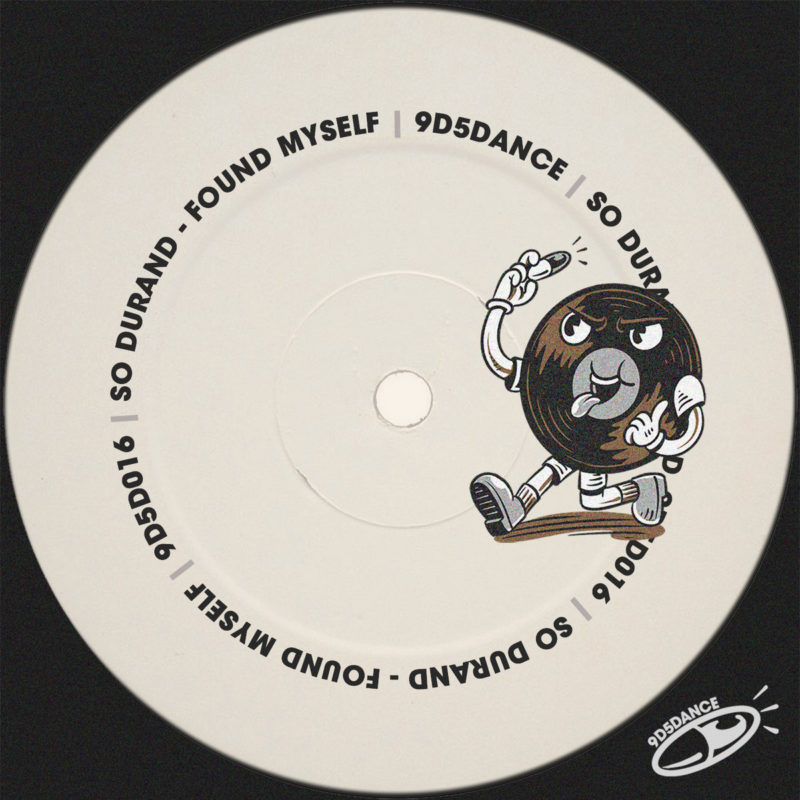
I’ve written about Ottawa’s So Durand a few times now, and I recently included an excellent dub of his in the latest Remix Sunday. The guy is always sharp with his breakbeats, but his latest pulls off the difficult trick of balancing the shuffle and deep pocket of an intact pitched hot pants break with the heft and thud of 4×4. Pair that with some extremely chorused and warbly pads and a couple of effectively placed vocal samples, and we find ourselves in some very nice circumstances.
This is out now on Toronto’s 9D5Dance. Grab it on bandcamp or stream it wherever you get your streams.
So Durand – “Found Myself” (bc)
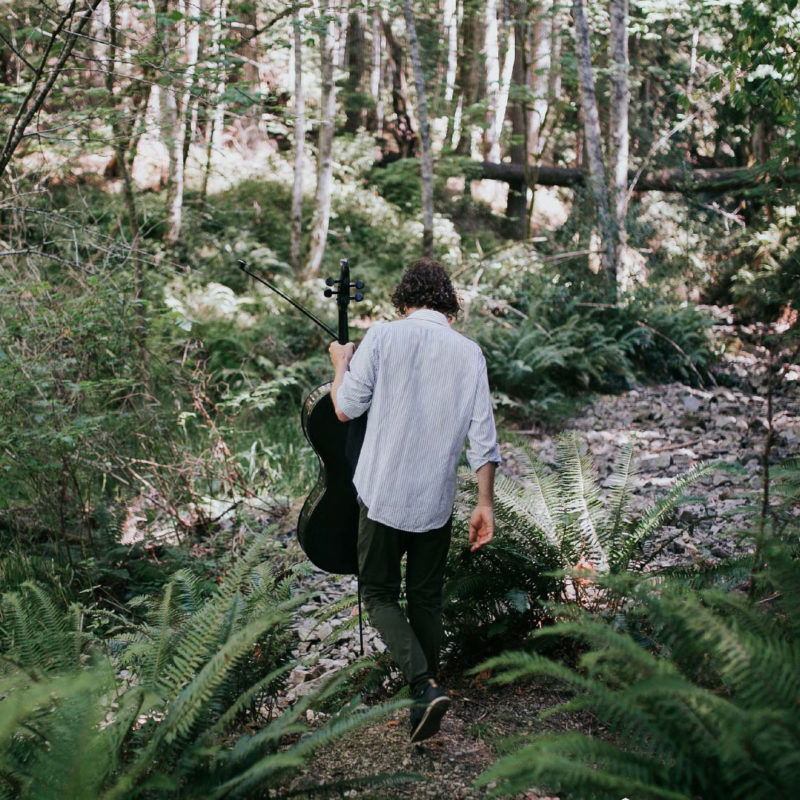
Having a child has made me think more about the question of nature vs. nurture than I ever expected to. Before Iris arrived, I thought of it as one of those questions that didn’t make much real-world difference, and therefore didn’t merit much contemplation. Whether or not we were born with some quality or another wouldn’t relieve us of taking responsibility for it, and society would be likely to judge us the same regardless. But now, perhaps largely out of sheer awe, I’m equally amazed by my daughter’s utter behavioral originality as I am her perfect absorption and reflection of my behaviors and those of my wife’s. What makes us who we are? Are we primarily the product of our surroundings, or is our true self innate? It’s porbably some combination of both, but now I don’t think I’ll ever cease being fascinated by the question.
If you’ve been reading closely the past couple of years, you’ll have noticed I’ve been flirting more and more with ambient music that teeters into the world of classical. Tonight, my toe dipping is replaced by setting my foot down squarely in the realm of Baroque and contemporary classical. Inner Nature is the new three song EP from Toronto-based composer and cellist George Crotty. And while it’s certainly the most straightforward classical music I’ve written about here, it’s by no means stiff. The record is open-hearted and lush, and ultimately an abstract exploration of exactly the questions I’ve posed above. The extent to which we can ever know the answers to these kinds of perennial questions is limited, but Crotty has written a record that seems to communicate that the answers themselves are essentially unimportant. Instead, it tells us to embrace our inner selves, no matter how obfuscated our true nature may be, or how impossible it is to know its source.
All three songs on Inner Nature are simultaneously optimistic and wistful; harmonious and bittersweet. We can accept ourselves for who we are while still acknowledging our capacity to hurt others and cause pain. True self acceptance is forgiving oneself for one’s misdeeds and also rejoicing in the capacity to do good.
Inner Nature is out now on bandcamp and for streaming.
George Crotty – “The Fog” (bc)
(Expand)
This review was written in support of the artist’s promotional campaign.
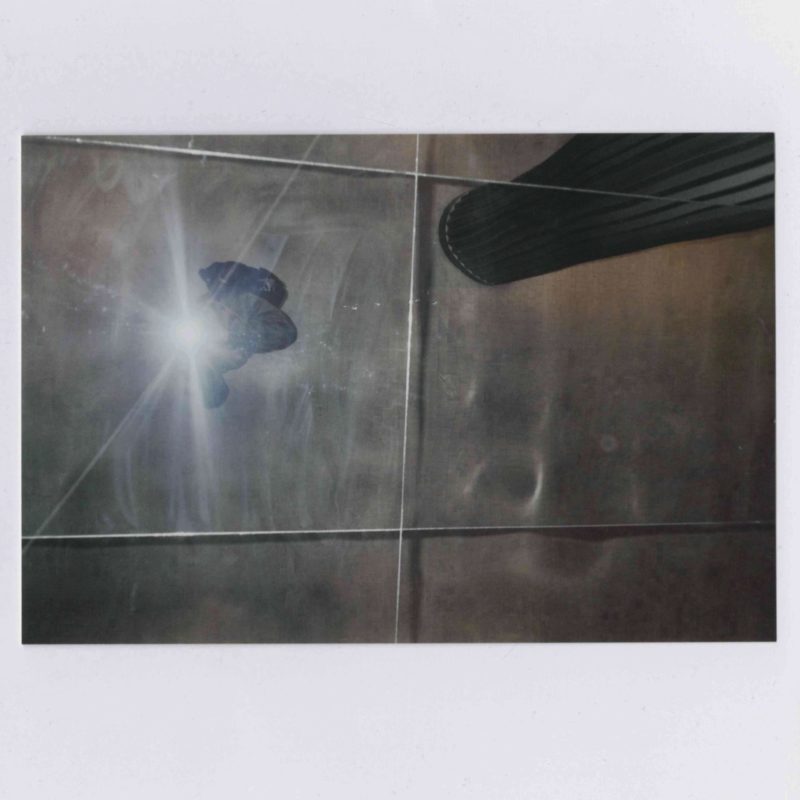
Two excellent submissions from Dutch producer Eauki (real name Merijn Bergé). “Nectarine” is a perfect sun ray of a 2-step track; all melting icicles and evaporative cloud generation; just right on one of the first warm days of the year up here where I am. “Kinda Lovin” is a brief but contemplative hit of minimalist breakbeat; a song for preparing to make the hard choice to leave while remaining filled with affection for whatever or whomever you’re leaving. No bandcamp for these, unfortunately, but Bergé has been kind enough to let me share with you the mp3s, in case you want to play these out or include them in a mix; they’re also both available for streaming.
Eauki – “Nectarine” (mp3)
Eauki – “Kinda Lovin” (mp3)
![]()
Next up, a glowing and playful piece of emotive house music from Leeds-based Stuart Thomas, aka Mountain Range. This lands somewhere between the warm plasticity of folks like Tom VR or Two Shell, and the naturalistic, blooming quality of a a mid-era Bonobo or Hebden record. Quality stuff. No bandcamp for some reason, so no luck for any DJs out there, but streamers be streaming.
Mountain Range – TwoTwoTwo (sc)
![]()
Finally, another two solid cuts of vibrant breakbeat sent over by Bosnian-born, Arizona-raised Lore. Warm, shimmering, escapist, club melancholia like this is the new bubblegum, I’d say. Nothing wrong with some weepy bubblegum. These are both from Lore’s debut four-track self-titled EP, which you can find on bandcamp or for streaming all over. The other two tracks definitely worth checking for too.
Lore & Keenan Mathias- “Anytime (Needed You)” (sc)
Lore – “Gleam” (sc)

Lovely new single from Philly’s QRTR (real name Meagan Rodriguez). “Without You” is a clear manifestation of the vein of dance music Rodriguez has been exploring for the past few years—humid, midtempo, body-focused, and groove-heavy house and techno that doesn’t shy away from big doses of reverb, and generally delivers a sense of being slowly soaked under a weight of heavy steam. But it also feels like a step forward for her production, not so much because its edges are sharpened, but rather because she seems to be using all that vibe to smear some of the spikes and deliver a warmer and more cohesive ultimate effect.
This is from QRTR’s upcoming EP, schedule to be out some time in May on Headroom. You can grab it on bandcamp or stream it wherever. I’ve also included a song from her previous record music for stealing to, which flew under my radar when it was released last year, but is well worth checking for. And because I can’t quite resist, I’m including two of my favorites from her criminally underappreciated remix LP from 2022, from Nikki Nair and Mirin Doja respectively.
QRTR – “Without You” ft. Villager (sc)
QRTR – “again, but colder” (sc)
QRTR – “With You” ft. artemis orion (Nikki Nair Remix) (bc)
QRTR – “Running From It” (Mirin Doja Remix) (bc)
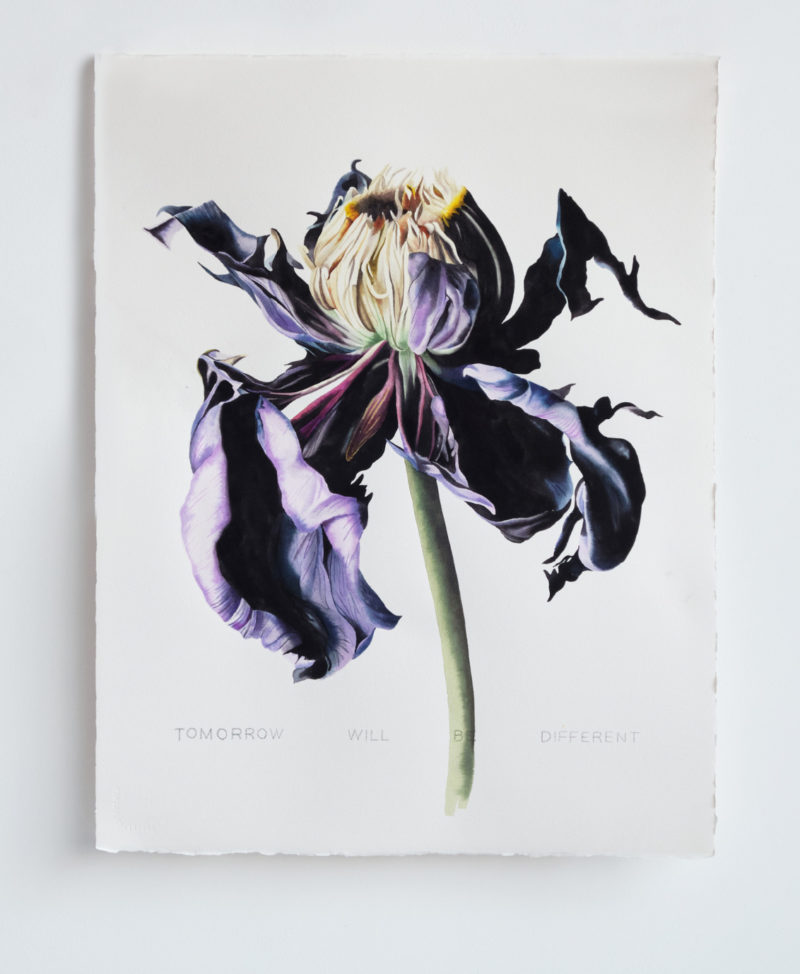
One of the many foolish things about the fools who compare writing about music to dancing about architecture is that dancing usually is about architecture. When bodies move in relation to a designed space, be it stage or ballroom or living room or gymnasium or agora or Congo Square, they comment on that space whether they mean to or not.
– Robert Christgau
Remix Sunday 167 Zipped Up. (85mb zip)
E.Terre – “Butterflies in a Field” (Sebastian Müller Remix)
Burial – “Archangel” (DJ LUKINHAS Remix)
Radiohead – “Creep” (DJ LUKINHAS Remix)
DJ Renan – “Bicho Papão” (VHOOR Dub Mix)
Pangaea – “Installation” (Y U QT DUB)
Ice Spice – “Princess Diana” (Jukaa Bootleg)
DJ Khaled – “Iced Out My Arms” (Stayhigh OG Vip)
Double Screen & Sharpson – “See Each Other” (So Durand Dub)
Beyoncé – “Move” (FUZZ & BAVR Edit)
Shygirl – “Nike” (ELOQ Skippy Edit)
Craig David – “Fill Me In” (Eauki Dub)
image/ Othelo Gervacio
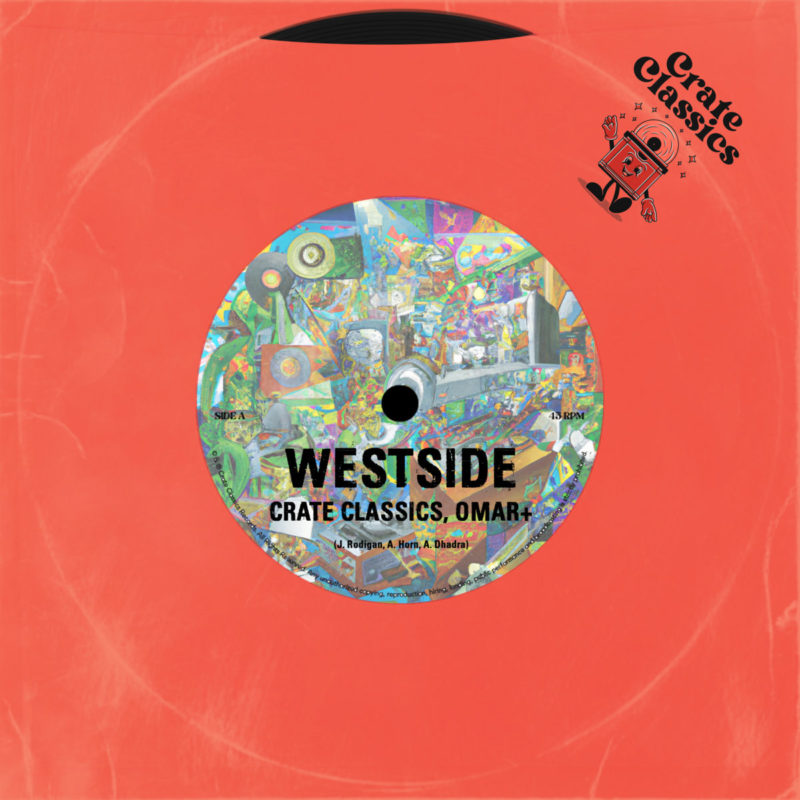
Crate Classics is Jamie Rodigan and Aaron Horn. Both have an impressive pedigree in the music industry (Horn is the son of producer Trevor Horn, Rodigan the song of radio DJ David Rodigan). Together, they’ve got a UK #1 under their belts, and they won a grammy for their co-production on Doja Cat’s “Woman.” This track, featuring crooning from Omar+, is a slice of tight breakbeats under a sample that I just can’t put my finger on. Like so many pop songs at this tempo in the wake of PinkPantheress, the track is less than 2 minutes long, but I guess that’s all you need to make a point these days (and to be fair, there is an extended mix available, which is just over 3 minutes). Rodigan and Horn have been kind enough to let me provide the mp3 here, but go support Crate Classics on bandcamp or on the streamers.
Crate Classics – “Westside” ft. Omar+ (mp3)
![]()
Glittery hyper-breakbeat from ♥ GOJII ♥, an artist from the States (not sure where exactly) pushing a warm, welcoming, and inclusive take on technicolor uptempo dance music. I generally gravitate towards the more melancholy or gloomy, but it’s really nice to have a musical burst of optimism every so often. This provides just that. Check for this on bandcamp (and explore the rest of their catalog) or find it on any of the streamers.
♥ GOJII ♥ – “All I Wanna Do” (sc)
![]()
Lovely moody bit of broken beat house from Midlands-based producer Fdluxx (real name Fouad Dehghan). Yavosh is roughly translated from Farsi or Turkish as “slow down.” The vocal sample that runs throughout the track repeats the phrase “take it slow,” which is always worth being reminded of, whether in dealing with genral stress and anxiety, completing a difficult task, or on the road. No bandcamp here, but Fdluxx has kindly provided the mp3 here, and it’s available on all the streamers.
Fdluxx – “Yavosh” (mp3)
Reptant – “Metachrosis” (bc)
Pépe – “Cloudbusters” (bc)

The common wisdom is that short term memory is encoded primarily acoustically and can only store about seven items at a time (like the seven digits of a US phone number), where long term memory is generally best recorded semantically and visually. Anterograde amnesia is the loss of short term memory, or more specifically, the inability to create new memories. There’s an opposite, sort of. It’s called hyperthymesia, and it’s a condition where someone essentially can’t forget any of the details of their own life experiences. The first person diagnosed with this syndrome (of which there are only ~60) is Jill Price, who can recall details about every day of her life since February 5th, 1980. She’s described how much of a burden it has been to live with this kind of memory, which doesn’t seem to me unlikely in the least. I’ll probably only be able to recall a handful of days of my life with the detail that Price can for most days of hers, yet I can absolutely relive the angst of my bad ones at any moment. The right trigger can bring me right back into an embarrassing moment I had when I was 12, or overwhelm me with the dull horror of receiving terrible news. Memory is pungent and enveloping, and you don’t often get a choice about it. Apparently, brain scans of some people with hyperthymesia look similar to those with certain types of obsessive compulsive disorder or PTSD. Remembering the good moments can be wonderful too, but isn’t it pretty universal that recalling those moments doesn’t generally have the same transportive quality?
Aleph Om (ℵॐ) is the assumed name of Detroit-based composer Alexander Brown. His latest record, Planes of Broken Mirrors feels like it’s about memory. Like so much of the music I’ve compared to Boards of Canada over the years, this album is innately nostalgic. But where most nostalgia-conscious music like BoC is nostalgic precisely because it conveys warmth, rose-tint, and childhood melancholia, Brown here seems just as concerned with capturing the dread and anxiety of emotional permanence and ceaseless memory itself. A few more-or-less overt references to this concept show up in some of the song titles (“I am Completely Haunted by the Past”, “Every Mother Was Cradled”), but currents of both warmth and ennui run throughout the album—often cooperatively.
Brown does deliver a few moments of relatively pure beauty and comfort here (“Cuddle Forever”, “Ripples”), but the strongest sequences on Planes of Broken Mirrors are those where stress and romance meet. “Simex Erasures” feels like getting chills under a heatlamp, like hurriedly entering an aggressively heated vestibule after being soaked in a sleet storm. “Esoteric Grocery Shopping” sounds like the musical embodiment of a thousand-yard stare, “Unbelievable Sojourn” an illustration of the way bucolic or pastoral beauty can persist in a place even in the aftermath of war or destruction.
This is music that attempts to bridge the ephemeral and the enduring. It’s music that recognizes it is definitionally delivered acoustically, but tries to reach its listeners’ semantic and visual memories, even occasionally at the listeners’ expense, but mostly for their benefit.
Planes of Broken Mirrors is out now for streaming or on bandcamp.
Aleph Om – “Unbelievable Sojourn” (bc)
Aleph Om – “Simex Erasures” (bc)
Aleph Om – “Esoteric Grocery Shopping” (bc)

I always have high aspirations, but I sometimes lack the long-term follow-through. Being a [relatively new] dad is also nearly all-consuming.
When I restarted this blog back at the end of 2021, I had a whole list of records I wanted to write about, with every intention of completing that list, along with restoring as much of the site’s archives as I could. What caught me off guard was how many submissions I would start to receive almost immediately, and how good most of them would be. Back in the blog’s good old days, I got bucketfuls of submissions every day, and I think I was among the few bloggers at the time who actually focused a lot of my efforts on digging through those submissions. I guess that inclination is still with me; it’s just fun to find diamonds in the rough, and I enjoy the opportunity to give hungry new artists a modest platform, at the very least to encourage them to keep doing what they’re doing. But I also spend plenty of time digging for music myself, and I’ve neglected to post about as much of that initial list (and what’s been added to it in the years since), in favor of focusing more on the stuff in my inbox. I’m going to make an effort to post a little less from the mailbox going forward and a little more from my own bag ‘o tricks. (Not to mention, I’ve also fallen off on the work restoring the site’s old content, but I promise that’s still on my radar for anyone out there waiting for something ancient to reappear.)
To this general end, despite having it on my list since the day I restarted the blog, I’m just now getting around to posting Stone Diviner, an exquisite record from 2021 by Ike (Zwanikken), an artist based in Naarm (Melbourne), Australia. I don’t know much of his backstory, but he hasn’t released very much under this name. Nonetheless, his sound feels totally evolved and demonstrates all the hallmarks of a fully developed artist. He’s got a newer record out as well, but that’ll have to be added to the to-do list in place of this one, which is basically a perfect record, and which I’ve rinsed to oblivion.
I posted the video for one song from this last year, but there’s no use trying to pick a favorite. The two shared below are as good as any on the record, but definitely do yourself a favor and get the whole thing on bandcamp now.
Ike – “Petale” (bc)
Ike – “Stone Diviner” (bc)

A lovely roller from Andalusian artist Gazzi (real name Pablo Jimenez), featuring vocals from Nidia (who I can’t find on google). “El Pedío” (which translates to “the request”) is inspired by the pedío gitano, a Romani engagement ceremony; the song aims to encapsulate some of the thrill of commitment, with all the risk and uncertainty inherent in the choice to dedicate your life to another person. Lovely stuff here. No bandcamp, but Gazzi’s label was kind enough to provide the mp3 below—-also available for streaming all over.
Gazzi – “El Pedío” ft. Nidia (mp3)
![]()
Chilling and precise acid from Dutch producer Bastian Benjamin. It’s not hard to win me over with a nice use of the 303, but this is a particularly refined and natural riff on the intersections between acid, electro, and dub techno. This is out for streaming or on bandcamp, but the artist has generously provided the mp3 below. If you play this out (or just listen to it more than a few times), please consider buying the track.
Bastian Benjamin – “Faux Pas” (mp3)
![]()
Wonderfully gentle, bubbly, and soulful 2-step on this track from Brazilian producer Rafa Mura, aka Shimizu. This is only his second release under this name, but it’s a gem. I imagine great things to come from Mura, this feels like the product of effortless talent. No bandcamp for this, unfortunately, so I’m not sure what to suggest if you’re a DJ who wants to play this out, but you can stream it as much as you’d like.
Shimizu – “TakeAMoment” (sc)

A few months ago, I wrote about Rex Kalibur, the pseudonym of Joshua Tree-based artist David M. Young. He’s just released a new record, Fragmentum.
Throughout his catalog—which is extensive given the fact he’s only been releasing music actively since 2020—Young has consistently explored themes related to nature, and particularly the California desert in which he’s immersed himself. In this sense, Fragmentum fits right in with his other records. It’s still distinctly desert music; textural and vast, but clean in a way that I can only describe as sand-washed or sun-bleached. Not in any way sterile, but also somehow purified. However, this is a less conceptual record than most of Young’s previous releases, many of which are written in the context of relatively prescriptive philosophical or technical frameworks. The record I previously wrote about, Lopen, attempted to use learning model-constructed sample generation to bridge the gap between the human and the artificial. (Just a fun note, I mentioned last time that the song “Sidequest LM” sounded like music you might have heard in an Ecco the Dolphin game. It turns out that Young’s father, also a composer, actually did the music for some of the Ecco games.)
Fragmentum is looser than Young’s previous work, and better for it. Straddling that middle ground between full length and EP, the record is nine songs—all fully realized thoughts of varying levels of complexity—but only twenty-two minutes runtime. It’s a collection of otherwise unconnected pieces that Young wrote over the past few years, without any uniform academic structure around them, nor produced using any strict sound palette (hence the title’s allusion to fragments). Instead, they’re tied together more instinctually, by Young’s sense that they belong together, which I think has led to a richer holistic experience than some of his previous work.
Fragmentum‘s opener, “Machine Dreams of Living” is the album’s standout. Its title doesn’t do it justice. This is not simply a robot’s melodramatic lament. It feels more like a song to serve as backdrop for the collective wail of a generation of machines left to rust in the desert for lifetimes after humanity’s extinction. Sure, the machines might outlast us, but will they have anything to live for once we’re gone? Another high point is “Finding Your Place,” which sounds to me a bit like a broken-hearted Joey Santiago pining for a cyberpunk cowgirl. The song’s liberal use of guitar is a good example of the stylistic freedom Young gives himself on this record. If it fits, use it. The final song, “Pedestrian” is aptly titled, it’s the only song on the album that communicates much palpable anxiety—it’s as if it’s a song about being forced out of nature and into a throng; surrounded by people instead of the desert, all that purity is suddenly sullied; space replaced by claustrophobia. But that’s not to say it’s a low point. It’s more like being let down easy.
At first blush, Fragmentum might feel like an introspective record, and it’s certainly personal. But like the rest of the Rex Kalibur catalog, this is music that looks primarily upward and outward. Young is in touch with the natural world around him as much as he’s in touch with himself, and in the desert, you get a great view of the sky.
Fragmentum is out now on bandcamp, or for streaming.
Mumdance – “In Love Again” (sc) [buy on bandcamp]
Big Dope P – “Top Shelf” ft. Littlez (sc) [buy on bandcamp]
LeFtO Early Bird – “Diane Charlemagne” ft. Iman Houssein (bc) [buy on bandcamp]
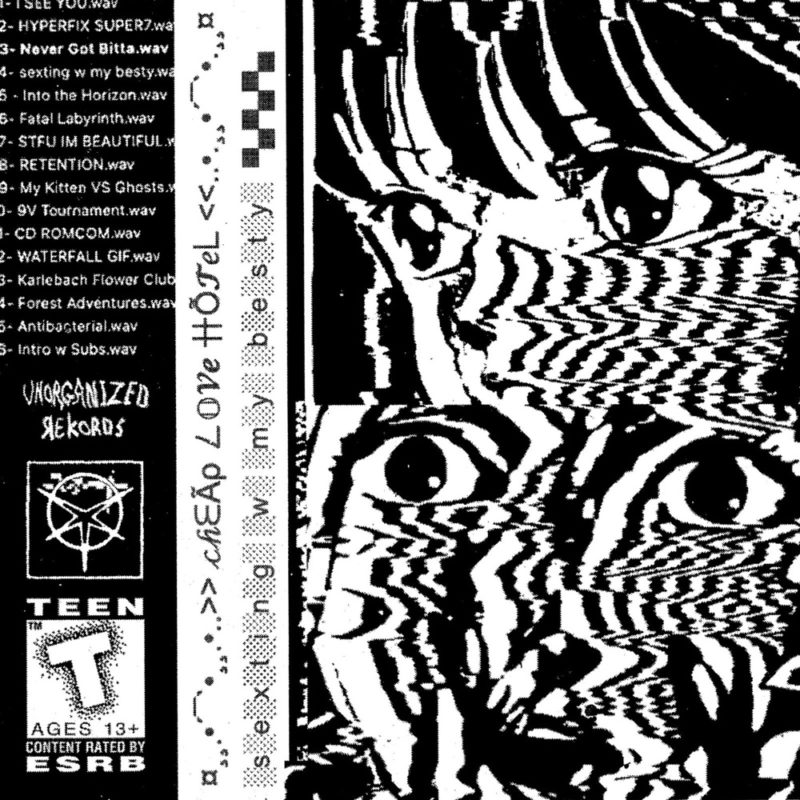
If you’ve been reading this blog with any regularity over the past 6 months, you’ve probably encountered one of my references to this breed of quasi-breakcore jungle-inspired internet music that I’ve hastily been describing as online jungle (as distinct from internetcore/webcore which seems much too broad a term to adequately capture this stuff). The breakcore-adjacent gaming-influenced microgenre seems to be proliferating quickly, not least because of the growth of the dreamstation discord, which also maintains dreamstation.fm and its live radio feed. To be fair, folks on dreamstation just seem to call this breakcore, without qualification, but I’m old and come from a time when breakcore was a lot more abrasive than most of the stuff I’m hearing coming from the dreamstation users. Plus, the dreamstation radio feed goes as far as playing house music sometimes, which isn’t a knock, but does detract from its authority re: the term breakcore.
One artist pursuing this style (though I’m not actually sure they’re active on dreamstation) is Cheap Love Hotel, based in Japan. Ripe with plenty of discord-friendly gaming humor and detail (again I’m old, but this still reminds me a lot of IRC channels or AOL chatrooms), and based in-principle on hollow bass stabs, and jungle-style breakbeat and sample manipulation, Cheap Love Hotel’s debut album sexting w my besty is real fun. The album fits in with the work of other artists in the genre, for sure, but is also generally more whimsical and idiosyncratic, often favoring hiphop sampling techniques and chopped jazz riffs instead of more serious melancholia and giant pads. This may partly be attributable to Japan’s rich raregroove and acid jazz scenes, but I can’t confirm that. In any case, the record is still squarely in online jungle territory, as far as I’m concerned, including because it embraces the shortform—of its sixteen songs, only one is over three minutes.
sexting with my besty is out now on all the streamers, or you can grab it on bandcamp. Cheap Love Hotel has also been generous enough to let me share with you the mp3s of three tracks from the album, including the title track, which is definitely my favorite from the record.
Cheap Love Hotel – “sexting w my besty” (mp3)
Cheap Love Hotel – “HYPERFIX SUPER7” (mp3)
Cheap Love Hotel – “RETENTION” (mp3)
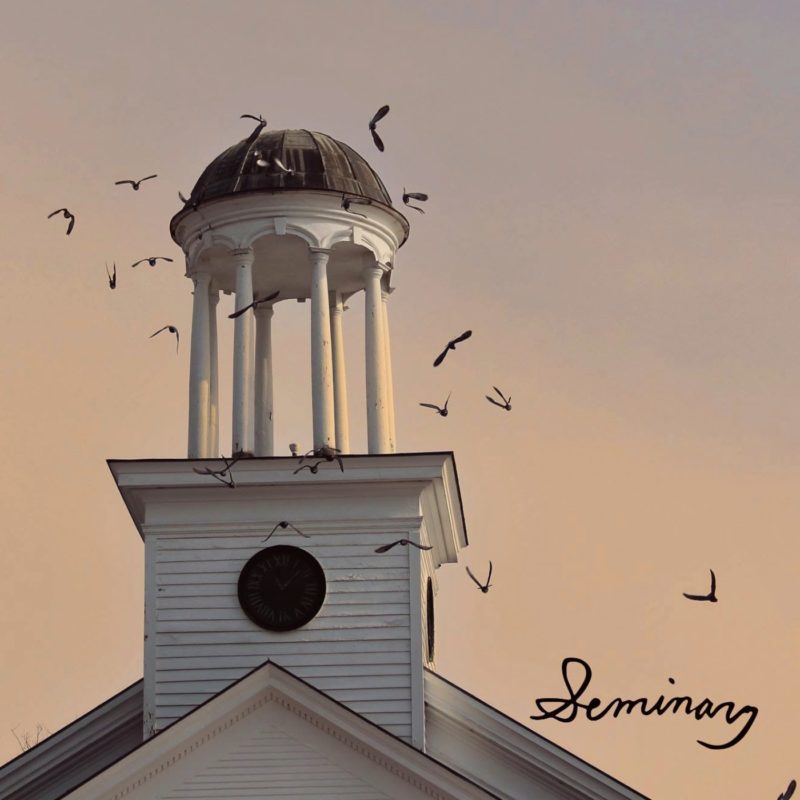
Even if you don’t know it by name, you know the sound of a Waterphone. It’s that haunting dissonant whimper of delicately vibrating metal that sounds a bit like the call of a whale’s ghost; it’s present in virtually every horror movie since Poltergeist, and many blockbuster thrillers and epics like Aliens, Jurassic Park, The Matrix, and innumerable other films. It’s a sound that Hollywood has ensured is inescapably linked to the feelings of dread and tension. The instrument was created in the 60s by the late artist Richard Waters after he encountered a unique Tibetan tonal instrument that he described as a “water drum” (which has incorrectly been associated by other writers with the Jibara water drum, nothing like what Waters has described playing). The instrument he found—and apparently never saw again—created pre-echoes and bent tones when it was struck, as the result of small amounts of water moving across its flat bronze surface.
Influenced by his single encounter with this instrument, and other resonant metal percussive instruments like the Kalimba and 16th century nail violin, Waters built the Waterphone, comprising a shallow bronze or steel bowl that holds water, with a resonating tube and handle jutting out from its middle, and a series of metal rods of varying size lining its edge. These rods are then carefully tuned using a combination of micro-tonal and diatonic relationships that Waters came up with, leading not to a unified scale, but instead to multiple integrated scales with both even and odd increments. Until his death in 2013, Waters built each Waterphone by hand and ear, using a metal forging technique he developed over the course of 40 years.
It’s almost impossible to hear the Waterphone without being transported into a horror film, but that tight association does the instrument somewhat of a disservice. There ought to be room to use its sounds effectively in the context of resonant, pleasant, or even playful music, not only to communicate moments of serious, fearful, dissonance. On her new EP seminary, Vermont-based artist Analise Hausmann seems to make a noble attempt to do so.
Intended to honor and find holiness in life’s more ordinary parts, seminary vacillates between the meditative choral ambience and found-soundscapes of songs like “cars” and “‘come on, I’ll catch you’”, to disorientingly hypnotic songs like “tuning” or “reflecting headlights” that appear to use the Waterphone heavily, closely in tandem with Hausmann’s violin. I asked her about the choice to use a Waterphone, and it turned out the sounds to which I had been referring were not, in fact, the product of a real Waterphone. Instead, Hausmann had managed to recreate—unintentionally—the sound of the Waterphone through experimentation with the modular synthesizer software VCV Rack. Though unplanned, the distinct sound she stumbled upon can still evoke all the feelings a strike of the Waterphone would, and it seems fitting in the context of her concept for the record. Waters crafted his instruments with a reverence generally reserved for religious objects and high art—imbuing them with a sense of holiness—but they nonetheless became most associated with pop-horror and thrill, reduced to evoking only fear. Hausmann’s record attempts to take mundane moments like the passing of a car and the melting of ice and breathe into them a sense of greater significance.
I’ve written often about the musical-emotional value of ordinary life and its building blocks. Hausmann does an excellent job recontextualizing not only the sound of the Waterphone, but also the sounds of the forest and everyday winter life in a Vermont college town. At its most serene, seminary evokes pious virtue and a sense of sorrowful profundity. But elsewhere on the record—partly because of Hausmann’s bold use of the pseudo-Waterphone—the record provokes in me a near-maniacal level of oxytocin-response, and instead manages to radiate mischief and whimsy. It’s perhaps inescapable in those moments not to imagine in that Vermont forest something like a witch or a warlock snickering over a bubbling cauldron. But I don’t see those images as if they were from a horror film; instead I’m reminded of how possible it can be to find something unusual in the innocuous.
Find seminary for streaming all over, or download the record on bandcamp for whatever you wish to pay.
Analise Hausmann – “‘come on, I’ll catch you’” (mp3)
Analise Hausmann – “tuning” (mp3)